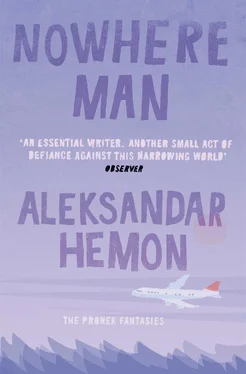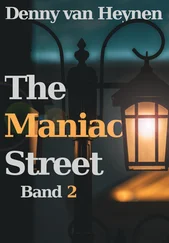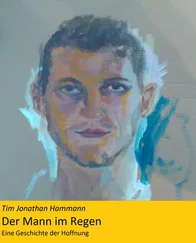“Yeah, it’s pretty,” JFK said.
Rachel slept on the El, still pressing her temple against the tip of Pronek’s shoulder, despite the hellacious noise and a posse of kids rapping over it about their life in the Robert Taylor homes. Two young women sat close in front of them, their long dark hair falling over the handlebars. Pronek saw the left one leaning toward her friend, touching her ear with her lips ever so slightly and saying: “I love you.” The train surfaced from the underground and the lights of the city glared through the grimy windows. The women got off at Belmont, holding hands.
Rachel got off at Lawrence, drowsy and barely conscious. She said she would see him tomorrow, and tomorrow seemed so distant to Pronek that he wanted to weep. He watched her descending the stairs and vanishing — he was already pining for her, the argon-neon lights making his face red.
When he unlocked the door of his studio, everything was in its place: the coffee mug that said KISS ME, I’M IRISH he had whimsically bought in a thrift shop still on the verge of the table; the map of the world still taped to the wall; the clock shaped like a pumpkin, which someone had left in the laundry room, still ticking; a pair of brown shoes turning away from each other in disgust; the washed plate in the rack leaning over the sink, as if wanting to see its own reflection — everything was precisely as he had left it. The amazing thing was, he thought, that when he wasn’t there, nobody was there — the space he occupied was empty when he was elsewhere. But the smell was different — he could sense a pungent, plastic scent, wholly unfamiliar to him. He moved, sniffing, stepping carefully on the tips of his toes, not turning on the light, ready for an attack, like a wolf returning to his violated den, his body tense and cocked, his eyes scorched with fatigue. He pussyfooted into his bedroom — his shirt stretched on the mattress as if playing dead. He went back to the kitchen, touched the bottom of the empty sink (a cockroach slipping into the hole), headlights flickering on the walls. He dropped to his knees and smelled the carpet in the middle of the room and under the radiator, but he couldn’t locate the source. He imagined someone sneaking into his place and browsing crassly and impatiently through everything in this little museum of his life: a green toy chopper he had stolen from someone’s porch; a tin windup frog; a frame with a picture of his parents, raising glasses, drunk; a puny wooden bowl full of marbles; a piece of wooden board with nails in it resembling the outline of the Great Bear. He imagined the intruder trying on his clothes, buttoning up his shirts. What would the intruder think of him, Pronek wondered, of his life? He moved on to the bathroom, where there was a new shower curtain the landlord had put in, exuding a sharp, chemical odor, shimmering in the dark.
DEATH IN VENICE
Pronek woke up with a vague, flabby erection and an itchy feeling that his life was happening to someone else. He sat at the table drinking coffee from the Irish mug, watching the people at the El stop waiting: a woman reading a book on a bench; a teenage boy twitching his head, following an obscure rhythm; a man with a straw hat and a sallow face, bending forward as if the morning were a sack of cement; a teenage girl with a palm of hair on top of her head and concentric gold chains on her chest. They stood far apart, not looking at one another. The sun glittered on the rails. This moment, Pronek thought, would not be remembered by anybody but him, and one day it would vanish from his memory too.
William stood at Pronek’s door in his dancing-teddy-bears underwear, his head huge, his face armored with acne. His phone was disconnected, and he needed to use the phone, he said, to respond to a singles ad.
William was from Portland and had come to Chicago to break into the improv comedy business, but was currently delivering pizzas and working in a moving company, his hands bruised every time Pronek saw him. After a small-talk session in the elevator, whereby William detected foreignness in Pronek’s curt responses, he had knocked at Pronek’s door and wanted to pick up Pronek’s accent for his improv routine. He had asked Pronek the standard questions (When and whence he came to the US?), then tried to imitate him, improvising a situation in which he was a foreign taxi driver. Pronek had listened to him and his morbidly unfunny performance that included idiotic grimaces and an accent that to Pronek sounded Irish. He felt his chest hollowing with fear and sorrow, while William kept laughing at his own lamentable jokes.
Pronek let him in and stood leaning against the kitchen counter, while William called the dating service. Pronek could see the sink cockroach emerging from the hole, then cautiously scurrying toward the stove, but he didn’t move.
“Hi, my name is William. Uhmm, I like Pulp Fiction and Asian cuisine and David Sedaris.”
He stuck his head into the bathroom, stretching the phone cord to the end, slowly pulling the phone off the table.
“There is nothing I want more than to give you a foot massage by the fireplace, sipping a foreign beer, singing my favorite song, which is, uhmm, ‘Yesterday.’ It would go like this. . Yesterday, all my troubles seemed so far away. .”
William sang in a feeble, flat voice, occasionally reaching the hoarse pitch of a tubercular baritone. The bathroom echoed the awful sounds and Pronek imagined the person listening to this hapless message, cringing. He remembered when he used to sing this song and was suddenly retroactively ashamed — he recalled himself with a guitar, strumming, trying to express the deep emotions contained in the song, and his skin crawled at the horror of his own stupidity, at the times when he thought that “Yesterday” was anything but a sappy song, at the times when he was someone else.
“Suddenly, I’m not half the man I used to be, there’s a shadow hanging over me. .” sang William, pulling up the edge of his boxers to scratch his thigh and revealing a pimple clearly evolving toward a boil. The phone slid off the table and crashed on the floor.
Rachel canvassed on the other side of the street. He could see her going up to the porch and ringing the bell, then looking around at the mailbox stuffed with magazines, at the lawns with wooden ducks and marble frogs and plastic angels and sprinkles, aluminum spiders with long green tails. He watched her head moving left and right as she spoke to the people who opened the door. Occasionally, she smiled and waved at him, walking between houses, the light diffused by yellow leaves softening the pallor of her face.
Pronek stood in front of a closed door, procrastinating, and when he rang the bell he prayed to the gods of corporate employment that nobody be home. He tried to talk about the dolphins to the people who opened the door, but they stared at him with dim contempt and no interest whatever. Door after door was slammed in his face and anger accumulated in his stomach. He kicked a neon-green plastic bucket and it banged against the picket fence.
“Come on in,” the woman said. “I’ve been waiting for you.”
She was short and frail, a humongous scarf coiled around her neck. Pronek stepped into the house, reluctantly, particles of something crackling under his shoes. The screen door banged him in the back, as if hurrying him inside.
“Are you hungry?” she asked Pronek. The house had a humid noodly smell. A fat little Buddha sat on a bookshelf, grinning next to a hedgehog of incense sticks. There was a mirror above the mantelpiece and Pronek stared at himself for a moment.
“No, thank you,” Pronek said.
“But I made the won-ton soup you like,” she said, “and some fried chicken too.”
Won-ton soup was Pronek’s favorite, and fried chicken too.
Читать дальше












